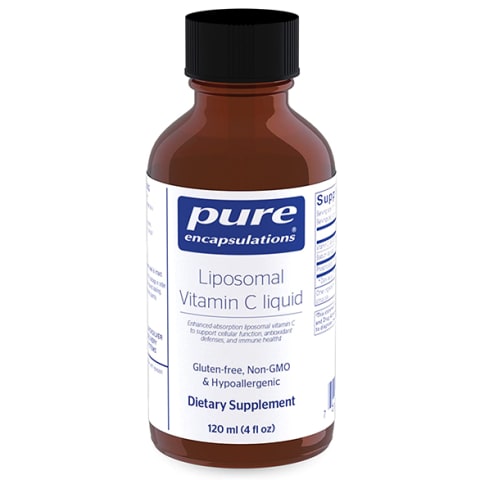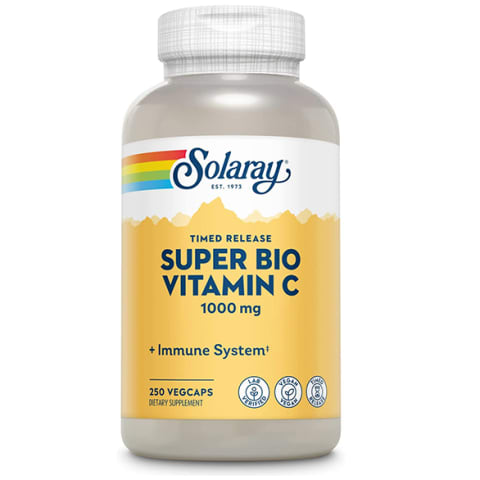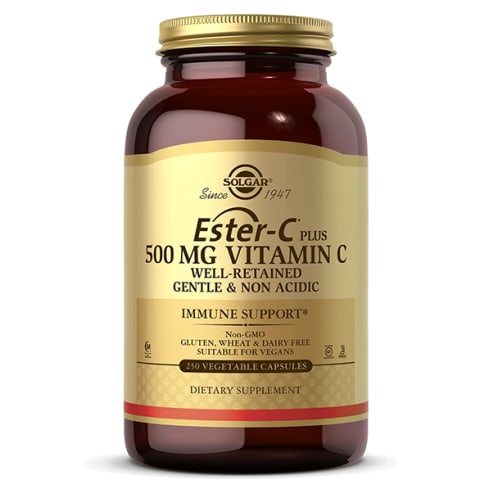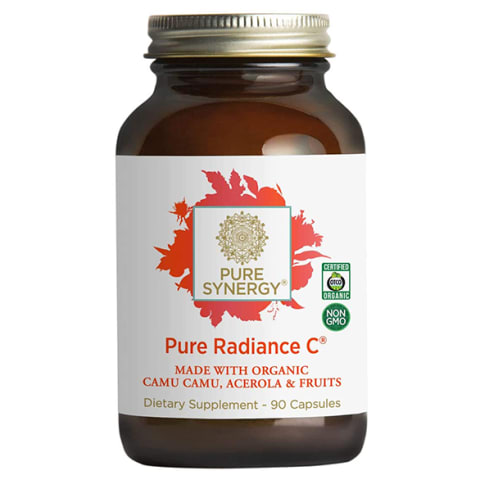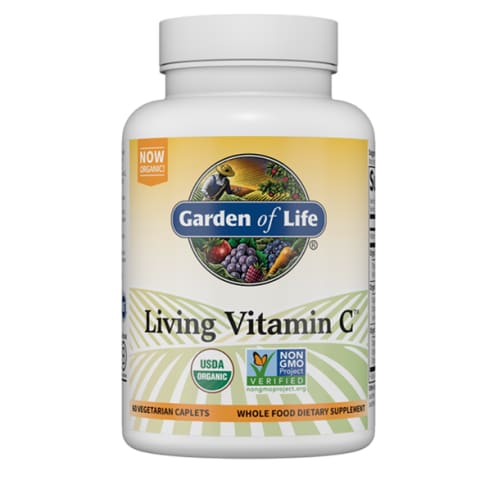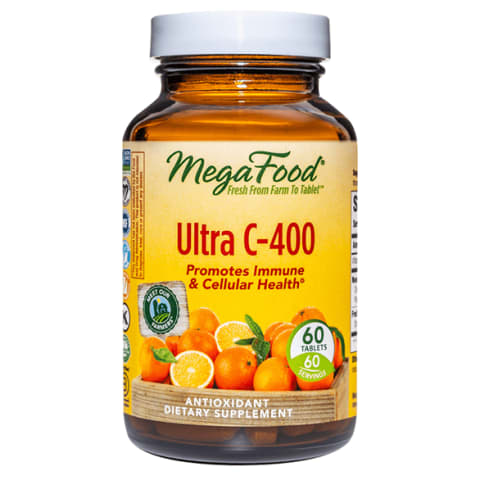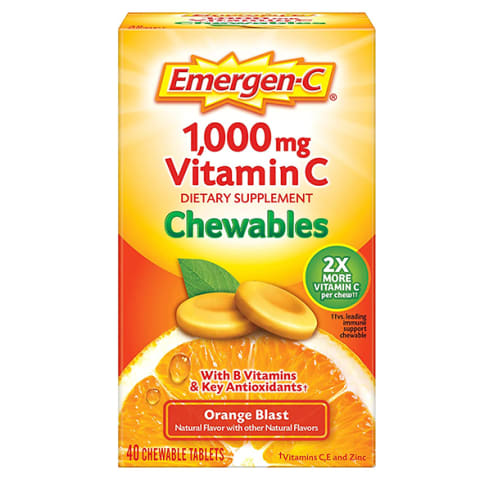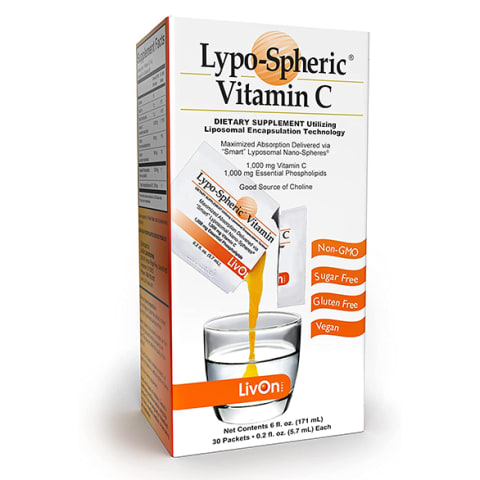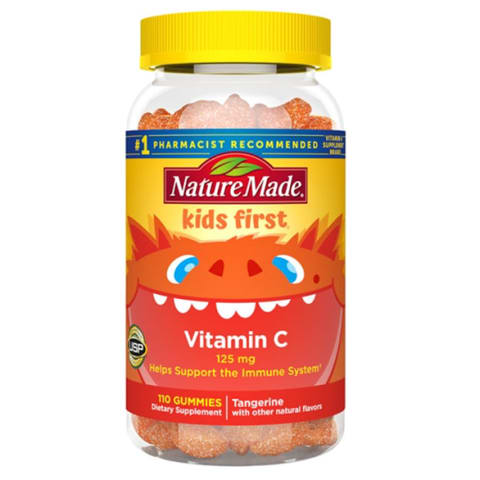Vitamin C is an essential nutrient, which means the human body can’t make it on its own (and thus, must consume it). Additionally, it’s a water-soluble vitamin, which means any C your body doesn’t absorb each day will be excreted through your urine. In addition to eating enough vitamin-C-rich foods, high-quality vitamin c supplementation is a fantastic way to ensure we’re getting an effective dose of C to support its array of benefits and whole-body health.* Trying to find the best vitamin C supplement can be overwhelming, though. (That’s where we come in.) If you’re on a mission to up your vitamin C intake, this comprehensive guide will help you find the best vitamin C supplement for you and your health needs. From vitamin C/lipid/citrus bioflavonoid trios and chewable tablets to gummies and liposomal powders and liquids—vitamin C supplements can take many different forms. The good news is that the delivery format doesn’t matter too much (although, we recommend you reserve gummies for kids or adults that don’t care to swallow other forms of vitamin C). Rather, it’s what’s inside the vitamin C supplement that really counts. Whether you’re trying to understand our selections better or doing research to find a vitamin C supplement on your own, here are the most important factors to evaluate, as determined and vetted by our vice president of scientific affairs, Ashley Jordan Ferira, Ph.D., RDN: Of course, dosing of vitamin C in supplements depends on what the particular supplement is designed to achieve. “When considering a multi-ingredient product (e.g., an immune complex or multivitamin), look for 90 milligrams of vitamin C or more to cover both male and female needs,” explains Ferira. “With stand-alone, high-potency vitamin C supplements for adults, look for higher doses (i.e., anything from 250 milligrams to 1,000 milligrams).” Often, this commitment to quality is also reflected in a supplement’s ingredient list. We look for active ingredients with clinical science backing and products that are free from artificial colors, flavors, sweeteners, dyes—and, whenever possible, free from gluten, soy, dairy, and GMOs as well. In terms of excipients (i.e., the inactive, additional ingredients included in a supplement formula), the shorter and cleaner the list, the better. Here are a few of vitamin C’s particularly noteworthy roles worth calling out:* Liposomal Vitamin C liquid, Pure Encapsulations ($37) Timed Release Super Bio Vitamin C, Solaray ($26.49) Ester-C Plus 500 mg Vitamin C Vegetable Capsules, Solgar ($26.88) Pure Radiance C, Pure Synergy ($24) Living Vitamin C Antioxidant Blend, Garden of Life ($18.39) Ultra C-400 mg, MegaFood ($29.82) Chewable Vitamin C 1,000 mg, Emergen-C ($10.88) Lypo-Spheric® Vitamin C, LivOn Labs ($39.95) Kids First® Vitamin C Gummies, Nature Made ($15.11/month) Our team ensures that each supplement product is thoughtfully formulated–from the active ingredients to those “Other ingredient” excipients too. We are highly preferential towards clean formulas that are plant-centric (and oftentimes vegan or vegetarian) as well as free of GMOs, gluten, soy, dairy, major food allergens, high-fructose corn syrup, artificial sweeteners, synthetic dyes, and more. Overall, we recommend products with clean ingredients at efficacious doses in bioactive forms. Whenever possible, we celebrate and elevate plant-origin (i.e., plant-sourced) ingredients from a variety of botanicals. Ingredient source and innovation are top of mind for our critical reviews and selection of supplement products. We prioritize forward-thinking formulations and delivery formats that are genuinely helpful in transforming your health. We include supplement brands and products that prioritize quality. This includes robust manufacturing practices and comprehensive purity and potency testing. You can learn more about mindbodygreen supplements+ manufacturing and quality testing practices here. Although vitamin C is needed daily to support these physiological functions, a large chunk of the U.S. adult population has insufficient vitamin C levels (42%, to be exact8) per their bloodwork. A high-quality supplement can complement your diet to help bridge that nutrient gap, ensure sufficient vitamin C status, and allow your body to leverage this readily available C however it needs.* When considering adding a new supplement (vitamin C or otherwise) to your routine, it’s always a good idea to discuss your options with a health care provider. Whether you’re interested in one of the vitamin C supplements we’ve featured here or are using the criteria above to advance your hunt for a different supplement, we hope this guide helps you find the perfect vitamin C product to address your health needs.



